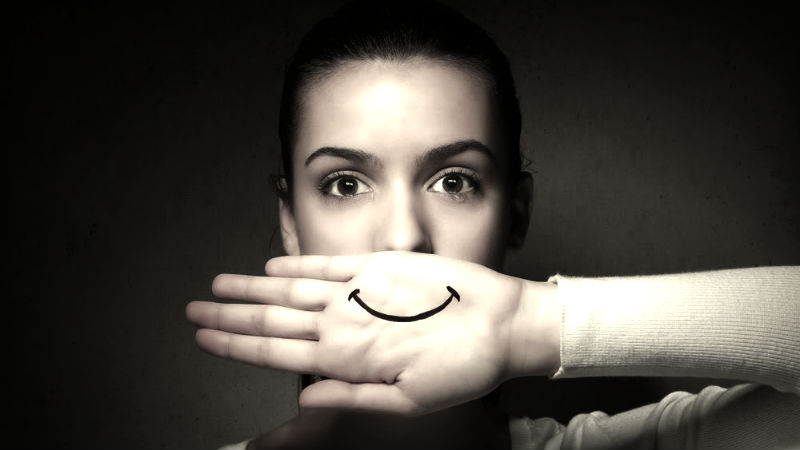The closest I have ever been to understanding what depression feels like is what I would categorize as a mild case of seasonal depression. My own personal experience doesn’t even scratch the surface of how detrimental this medical condition can be. What truly blows my mind is that I have brushed shoulders with those who suffer from more severe cases of depression my entire life – I just didn’t know how to identify it at the time. I am grateful that Simple Life has opened my eyes to recognizing what depression is and how it can be treated. For those who haven’t had the opportunity to learn about it – this blog post is especially for you.
Depression is a common medical condition that wears many masks. The 2020 American Psychiatric Association defines depression as a “…serious medical illness that negatively affects how you feel, the way you think and how you act.” The definition goes on to say that, “Depression causes feelings of sadness and/or a loss of interest in activities once enjoyed. It can lead to a variety of emotional and physical problems and can decrease a person’s ability to function at work and at home.” Even though I cannot say I battle with depression regularly, I have had a front row seat of how it can effect someone by being around members who fight to overcome their depression every single day.
Symptoms of depression range from mild to severe and they include things such as: feeling sad or having a depressed mood, loss of interest or pleasure in activities once enjoyed, changes in appetite — weight loss or gain unrelated to dieting, trouble sleeping or sleeping too much, loss of energy or increased fatigue, increase in purposeless physical activity (e.g., hand-wringing or pacing) or slowed movements and speech (actions observable by others), feeling worthless or guilty, difficulty thinking, concentrating or making decisions, or even thoughts of death or suicide (2020 American Psychiatric Association). One of the biggest lessons I’ve learned about depression is that each individual has their own unique set of symptoms and coping skills to help combat those negative thoughts. I have become more in tune to the little things such as the tone of voice and demeanor of the members who attend Simple Life to help clue me in to their mental health status.
Even though depression has some staggering statistics, it is also one of the most treatable mental disorders (2020 American Psychiatric Association). One way depression can be treated is through medications. Have you ever heard that depression is caused by a chemical imbalance in your brain? Well medications can assist in restoring the correct balance. Another treatment option is psychotherapy, otherwise known as talk therapy (2020 American Psychiatric Association). This particular form of therapy is useful all by itself when dealing with mild depression, but is often used alongside of medications for moderate to severe cases (2020 American Psychiatric Association). The last form of treatment is called electroconvulsive therapy which is most commonly used for those with severe cases who have been unsuccessful with other forms of treatment (2020 American Psychiatric Association). This medical treatment is a little more extreme as it involves patients being put under anesthesia and receiving brief electrical stimulation (2020 American Psychiatric Association).
Here at Simple Life, we work with members to help them overcome their symptoms of depression. We practice coping skills on a daily basis and strive to develop new coping skills for members to try in effort to combat their symptoms. Common coping skills we practice include: exercising, journaling, coloring, deep breathing, listening to music, playing games, reading, positive self-talk etc. These coping skills are designed to distract members and occupy their thoughts by engaging in constructive activities. One of the new coping skills we introduced to members just recently was Pickleball. This game quickly became a favorite for many members as it involved exercise, coordination, and mindfulness.
As humans, we sometimes fall into thinking that if the disorder cannot be seen physically, then it isn’t as serious or concerning. In my opinion, invisible hurt can be far more serious than physical issues because it requires one to look past facades and dig deeper into one’s inner core. I would encourage you to stop and consider the people you rub shoulders with every day. They may look perfectly fine on the outside, but are they secretly hurting on the inside? Are they showing symptoms of depression? Today, I want to encourage you to keep these symptoms in mind while paying attention to those around you. It might shock you to discover individuals you interact with every single day who are secretly hurting and desperate for someone to reach out. It is vital for us to realize that just because the hurt is invisible, does not mean it is less threatening.
References
Unknown Author. (American Psychiatric Association 2020). What Is Depression? Retrieved August 24, 2020, from https://www.psychiatry.org/patients-families/depression/what-is-depression


I have suffered from depression a good deal. Legally blind until 2006, no transportation and limited income. So bad at times, before I had kids, that it was hard to get dressed in the morning.
But I have survived! Thanks to therapy, meds and especially my kids!
I am very grateful.
Your people are close to my heart.